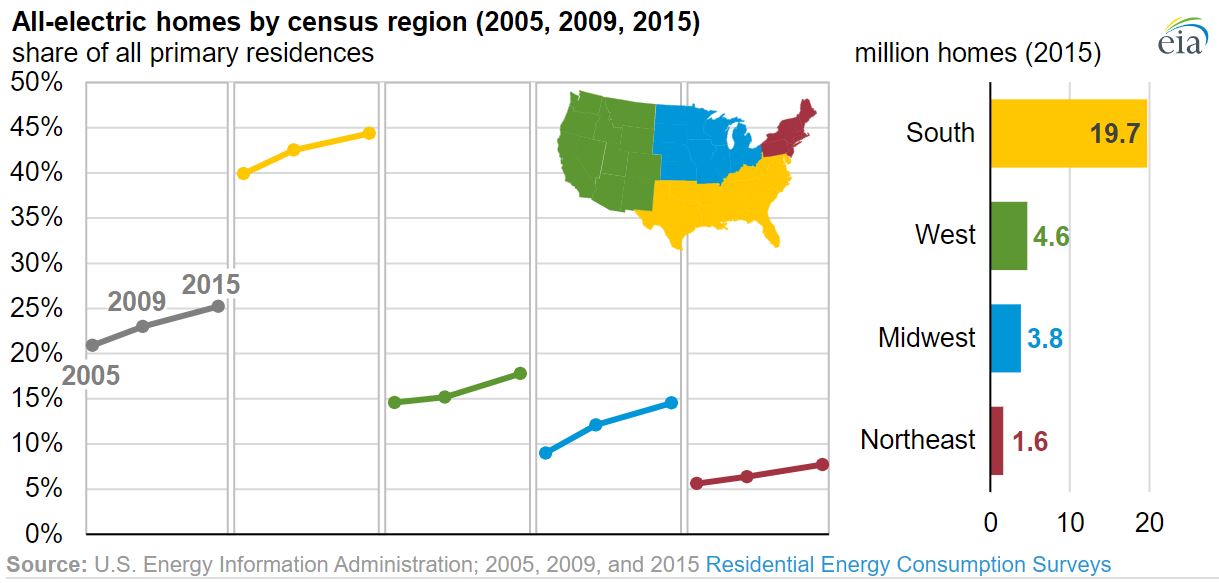Everything from El Niño to the kind of toaster you buy affects how your home uses energy. Energy use in your home is dependent on too many factors to ever list or explain, but we’re going to try anyway. Let’s start with the primary ways electricity is used in homes.
You can see below, in Figure 1, that more than half of all energy consumption is for space conditioning (either air conditioning or heat).
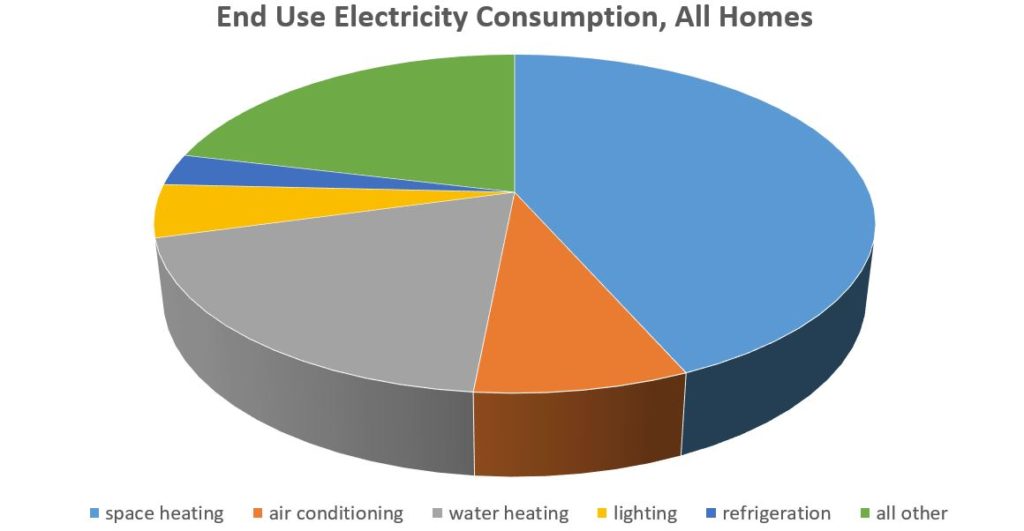
Figure 1 also shows that space heating accounts for more electricity use than air conditioning. This has a lot to do with the greater differences in temperature between inside and outside during winter months and the use of electric heat pumps with “auxiliary” or “emergency” heat systems in extremely cold weather. If you’d like to learn more about how electric heat pumps work or how to operate them efficiently read our other articles.
One striking thing about energy use in Tennessee, and in the South in general, is how much of the energy being used is delivered over the electric grid. In Figure 2 below, you can see that there are significantly more all-electric homes in the South than in any other region.
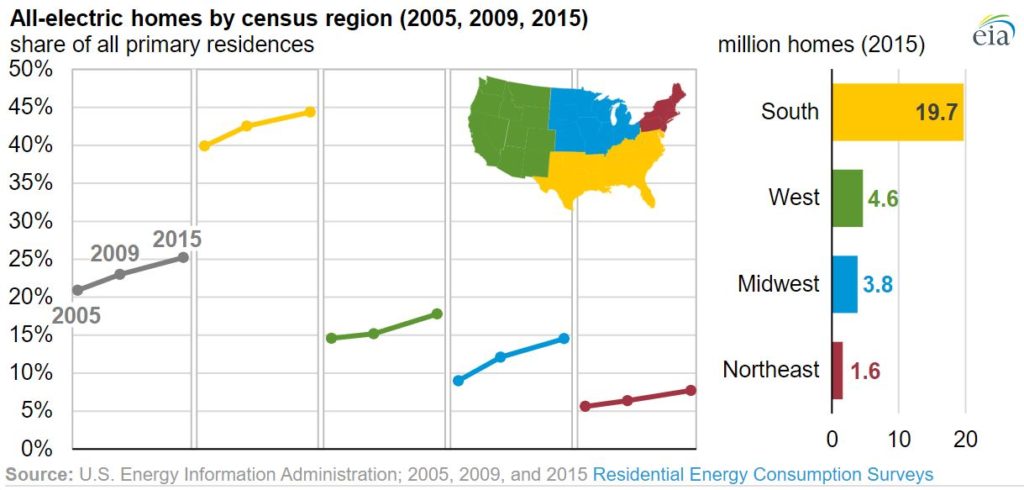
Homes in Tennessee typically use electric heat pumps for heat in winter and cooling in the summer, where some other regions are more likely to use natural gas for their heating needs. This causes total electric use in the South to be higher than in other regions across all types of homes. You can see this difference between our region and other regions reflected again in Figure 3.
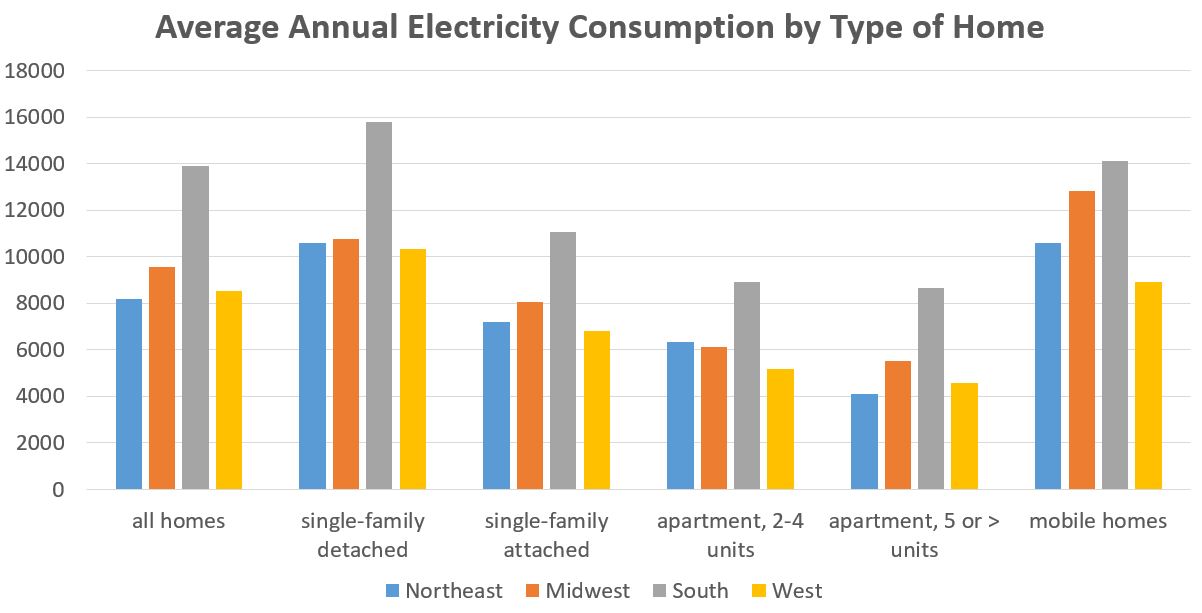
It’s important to note that Figure 3 doesn’t show that total energy use is higher in the South, only that electricity is the energy type of choice. The prominence of electricity as a primary energy source in the South is largely because of the low cost of Public Power in states like Tennessee.
We like charts and graphs a lot, so here’s one more just for fun. It shows the reasons why people walk away from conversations with us:
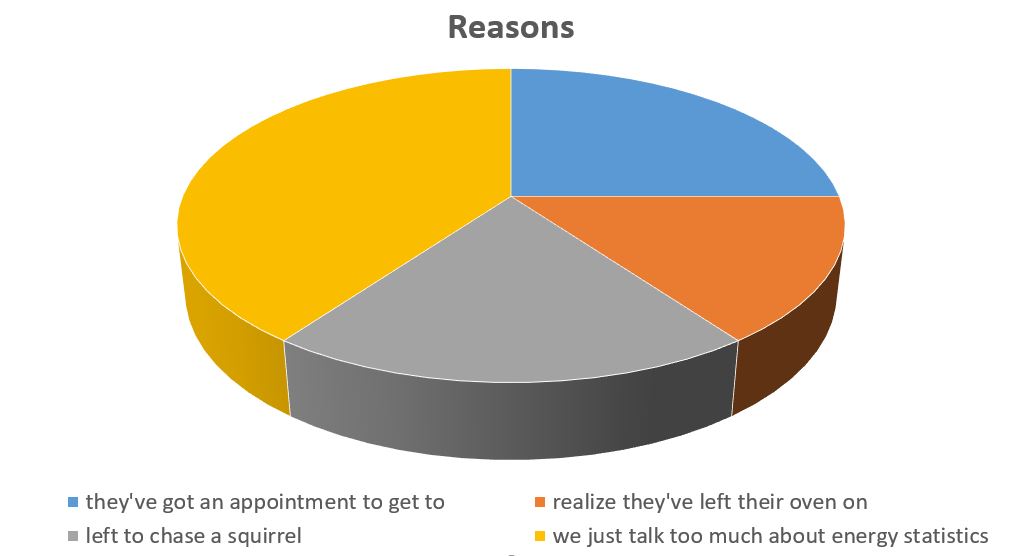
In this case, however, all the charts and graphs are necessary to bring us to this important and actionable conclusion:
We can see that homes in the South use relatively high amounts of energy for heating and cooling. We can also see that most of the energy used is delivered as electricity. This tells us that the most effective energy efficiency efforts for our region may be those focused on reduction of heating and air conditioning loads.
The higher percentage of all-electric homes in the South is partially due to the climate in our region. Hot summers and cold winters demand heating, air conditioning and ventilation systems (HVAC) that can keep up in both extremes. For this reason, electric heat pumps have become a popular HVAC choice in Tennessee. Heat pumps can be a practical and efficient means of heating your home in the winter and air conditioning in the summer, if correctly maintained and operated.
To learn about efficient heat pump operation read Energy Insight: How can you efficiently operate your heat and air-conditioning.
If you want to learn more read Energy Insight: How do electric heat pumps work.
To learn more about energy use in homes explore the U.S. Energy Information Administration’s Residential Energy Consumption Survey.
For more energy-saving tactics check out our other articles and sign up as a CDE Lightband Power Partner to get access to our latest Energy Insight articles and energy efficiency offerings.

